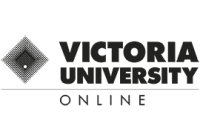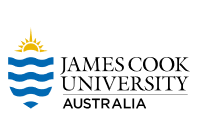Are you considering pursuing an MBA in Australia? It can be a life-changing decision, but with so many options and opportunities, it's important to weigh the pros and cons before taking the leap. In this article, we will explore the benefits and drawbacks of pursuing an MBA in Australia and help you make an informed decision about your future.
In short, pursuing an MBA in Australia can open doors to exciting career prospects, both locally and internationally. With world-renowned universities and a diverse student population, you'll have access to a vast network of industry professionals and opportunities for hands-on learning. However, it's important to note that the cost of living and studying in Australia can be high, and competition for jobs can be fierce.
So, what do you need to know before deciding to pursue an MBA in Australia? From the quality of education to the job market and beyond, we'll delve into all the important factors you should consider. Whether you're a recent graduate or a seasoned professional looking to advance your career, this article will provide you with valuable insights to help you make the right decision.
Let's dive in!
Quick Links To Online MBA Degree Programs
VICTORIA UNIVERSITY
MASTER OF BUSINESS ADMINISTRATION (ONLINE)
- 2 years part-time (minimum)
- 12 units (7 weeks)
- $3,650 per unit, FEE-HELP available
EDITH COWAN UNIVERSITY
MASTER OF BUSINESS ADMINISTRATION (MBA) ONLINE
- 24 months / 18 months (Fast-Track) minimum
- 12 units / 9 units (Fast-Track)
- $54,000 / $40,500 (Fast-Track); FEE-HELP available
University of Technology Sydney
MASTER OF BUSINESS ADMINISTRATION (ONLINE)
- 2 years (minimum), part-time
- 12 subjects | 7-week study blocks
- $4,250 per subject**, FEE-HELP available
JAMES COOK UNIVERSITY
MASTER OF BUSINESS ADMINISTRATION GLOBAL (MBA ONLINE)
- 24 months, Part-time
- 12 Subjects (One subject per each 7-week study period)
- $3,700 per subject, FEE-HELP is available
What Is an MBA?
An MBA, also known as a Master of Business Administration, is a graduate degree in business administration that provides students with a complete understanding of a number of firm activities. An MBA can also be referred to by its alternative name, the Master of Business Administration.
The functions of finance, marketing, operations, and human resources, amongst others, are some examples of these functions. Students who get this degree gain the abilities necessary to succeed in a wide variety of professional professions and attain positions of power within those industries.
MBA programmes can be completed in as little as one year or as much as two years, depending on whether or not they are attended on a part-time or full-time basis. The courses in the curriculum range from those dealing with accounting and finance to those dealing with strategy and leadership.
This is done so that students will graduate with a wide variety of business skills and knowledge. Students will be prepared for a variety of business-related roles with the expectation that they will perform successfully in those areas upon graduation from the curriculum.
In addition to the more conventional classroom teaching methods, many MBA curricula now include experiential learning opportunities, including internships, consulting assignments, and case studies. These kinds of adjustments allow students to put what they've learned in the classroom to use in the real world and, in the process, gain the important and necessary experience.
Through the availability of specialisations and emphases in various MBA programs, students can tailor their educational experience to better fit with their passions and professional objectives.
This is made possible by the availability of specialisations and emphases. When it comes to business, some of the most prominent areas of speciality are finance, marketing, entrepreneurship, healthcare management, and international business.
People who wish to advance further in their business professions may find that investing in the education required to acquire a master's degree in business administration is a decision that can prove to be financially rewarding.
In addition to providing the student with opportunities to network and access to a community of supporting alumni, the degree also provides the student with a solid foundation of information and talents pertaining to business.
Overview of MBA Programs in Australia
The Master of Business Administration (MBA) programmes in Australia are structured to offer students an all-encompassing education in the areas of business and management. The programmes are desgned to cultivate students' abilities in areas like critical thinking, leadership, and analysis, preparing them for a variety of managerial positions in the business world.
The majority of Master of Business Administration (MBA) programmes in Australia are provided by top-ranked business schools. These schools are well-known throughout the world for their exceptional research, teaching, and industry relationships.
The courses are frequently delivered by knowledgeable faculty members, many of whom have significant prior experience working in various aspects of the corporate sector.
It is possible for the structure and content of MBA programmes in Australia to differ from institution to institution and programme to program, but in general, these programmes consist of a mixture of required courses, electives, and practical learning experiences such as internships, simulations, and case studies.
In addition to the traditional Master of Business Administration (MBA) program, several of Australia's business schools now offer specialist MBA programmes.
Some examples of these programmes are the Executive MBA (EMBA), the Global MBA, and the Online MBA.
These programmes accommodate a wide variety of requirements and interests, hence providing a more individualised educational experience.
The length of a Master of Business Administration (MBA) programme in Australia can vary anywhere from 12 to 24 months in length, depending on the programme and the area of specialisation.
In order to better serve the needs of working professionals, certain educational institutions may provide flexible or part-time study choices.
The admissions process for MBA programmes in Australia is relatively easy due to the massive volume of applications received annually by several of the country's MBA schools.
A good academic background, relevant job experience, and a competitive GMAT or GRE score are typically required for admission, but these requirements can vary from programme to programme and institution to school.
Employers across a wide number of fields in Australia, including those in the fields of banking, consulting, healthcare, and technology, have a strong interest in hiring MBA graduates. Students from all over the world choose to come to Australia to study for their MBAs because the country has a robust labour market and offers excellent earning possibilities.
Types of MBAs

There is more than one variety of master's of business administration (MBA) programme available, and each one has its own particular emphasis and framework. The following are some of the most prevalent varieties of MBAs:
- MBA programmes may be broken down into two categories: full-time and part-time. Full-time MBA programmes are the most traditional sort of MBA program, in which students attend classes full-time for one to two years. These programmes provide students with an all-encompassing curriculum and frequently incorporate opportunities for experiential learning, such as internships and consulting assignments.
- MBAs earned on a part-time basis are tailored to meet the needs of working people who desire to further their education while maintaining their current responsibilities. The programme can take two to four years to finish, and classes are normally held in the evenings or on weekends.
- Executive Master of Business Administration: Executive MBA programmes are intended for seasoned individuals who are already serving in leadership roles. The curriculums of these programmes often cover more advanced topics and place emphasis on the development of strategic leadership abilities. Classes are generally held on weekends or in intensive week-long programmes.
- Online Master of Business Administration: Online Master of Business Administration (MBA) programmes are gaining popularity, particularly among working professionals who want schedule flexibility. The coursework for these programmes is identical to that of standard MBA programmes; however, students are given the opportunity to complete their studies online at their own convenience.
- MBA programmes often allow students to acquire two degrees simultaneously, such as an MBA and a Master of Public Health degree or an MBA and a Juris Doctorate degree. This is referred to as a dual degree MBA. These courses provide participants with a one-of-a-kind blend of general and specific business knowledge.
It is essential to conduct research on the many types of MBA programmes in order to identify the one that corresponds most closely with your lifestyle and professional aspirations.
Considerations to make include the format of the program, its price, its location, and its standing in the industry. Choosing the right MBA program will equip you with the information, abilities, and network necessary to succeed in your career.
Pros of Pursuing an MBA
- International Reputation: MBA programmes in Australia are renowned around the world and hold a high level of respect; as a result, graduates are given a competitive advantage when entering the workforce. Students come from all over the world to study at the country's business schools because of their stellar reputations in the areas of education, research, and collaboration with local businesses.
- Connections to Industry: Australia's business schools maintain robust relationships with the country's most successful companies and businesses. As a result, students at these schools have access to a wealth of options for professional development, including internships and job placements.
- MBA Programs in Australia Attract a Diverse Student Body MBA programmes in Australia attract students from a variety of cultural and professional backgrounds, making for a diverse student body. Students benefit from a more meaningful and distinctive educational experience thanks to this diversity, which exposes them to a variety of viewpoints and methods.
- Curriculum That Reflects the Latest Trends and Advancements in the Business World: Business schools in Australia offer cutting-edge and inventive curriculums that represent the most recent trends and advancements in the business world. Students have the opportunity to learn from knowledgeable members of the teaching staff and participate in hands-on learning activities such as simulations and case studies.
- Possibilities for Career Progression and High Earning Potential: MBA graduates in Australia have good work prospects, with possibilities for career progression and high earning potential. Because of the country's robust economy and wide range of businesses, a wide variety of employment opportunities are available in sectors such as technology, consulting, healthcare, and finance.
- Student Support Services Many business schools in Australia offer a variety of student support services to their students. Some of these services include academic advising, career counselling, and networking events. Students are able to improve their skill sets, build meaningful connections, and advance in their chosen careers with the assistance of these programmes.
- Quality of Life: Australia is consistently recognised as one of the world's most liveable countries, offering a high quality of life and good standards of education and healthcare. This has contributed to Australia's long-standing position at the top of the list. Students who choose to pursue their education in Australia will have the chance to immerse themselves in a culture unlike any other, witness breathtaking natural scenery, and become part of a community that values diversity and acceptance.
In general, earning a Master of Business Administration (MBA) in Australia may provide students with an education on par with the best in the world, invaluable business connections, and outstanding job opportunities, all while exposing them to the singular and warm culture of Australia.
Cons of Pursuing an MBA
- The cost of living in Australia is well recognised to be among the highest in the world, which can make it difficult for students to keep track of their money while they are pursuing an MBA degree. The costs of living, maintaining one's health, and getting around can be very high in large cities like Sydney and Melbourne.
- Scholarships Are Hard to Come By: Although some scholarship possibilities are accessible for MBA students in Australia, the number of eligible scholarships is extremely low, and the competition for them is fierce. Because of the criteria for visas and other reasons, it may be more difficult for international students to obtain financial aid than it is for domestic students.
- Job Market Competition: Although Australia's robust economy provides excellent employment opportunities for MBA graduates, the job market can be rather competitive, particularly in industries such as banking and consulting. In order for students to find employment after graduation, they need to put in a lot of effort, be extremely proactive in networking, and look for jobs.
- Isolation from Home Country: Studying in Australia can put international students in a position where they are physically separated from their family and friends back in their home country. Some students, particularly those susceptible to culture shock or who have trouble adapting to new environments, could find this particularly challenging.
- While MBA programmes in Australia provide a strong grounding in the foundations of business, they provide a different level of industry specialisation than programmes in other nations. Students that are interested in following a highly specialised job path might be required to pursue further education or training in order to be successful in doing so.
- Some regions may have less diversity than others, despite the fact that Australia as a whole is a very diverse and multicultural country. Students who wish to gain exposure to diverse cultures and points of view may need help to overcome this.
- Although business schools in Australia offer strong industry links within the country, there may be fewer options for networking outside of Australia. Business schools in Australia offer strong linkages to industries within the country. Students who are interested in constructing international networks of relationships may need help to overcome this.
In general, getting a master's degree in business administration (MBA) in Australia can be advantageous in many ways; however, it is essential for students to take into consideration the possible difficulties and drawbacks as well.
Students should carefully consider the benefits and drawbacks of obtaining an MBA in Australia before making a final decision. The high cost of living and restricted specialisation opportunities are only two drawbacks.
MBA Admissions Requirements
The process of gaining entry into a Master of Business Administration (MBA) programme is extremely competitive, and schools often have stringent prerequisites for applicants. The following are examples of standard admittance requirements for MBA programmes:
- A Bachelor's degree: Applicants to the majority of MBA programmes are required to have a Bachelor's degree from an institution that has been granted accreditation. In addition, certain programmes require that you complete certain courses throughout your undergraduate studies in subjects like business, economics, or mathematics.
- Scores on standardised tests: Applicants to many MBA programmes are required to submit their GMAT or GRE scores. The GMAT stands for the Graduate Management Admission Test, and the GRE is for the Graduate Record Examination. The analytical, verbal, and quantitative capabilities of applicants are evaluated with the help of these examinations, which also determine whether or not a student is prepared for courses at the graduate level.
- Experience in the workplace: The majority of MBA programmes favour applicants who have some experience in the workplace, often between two and five years of professional experience. This prerequisite is necessary since Master of Business Administration (MBA) programmes are geared towards students who are interested in advancing their professions or switching to a different line of work.
- Recommendation letters: MBA programmes normally demand between two and three letters of recommendation written by professionals in the applicant's field or academic references. These letters should speak to the applicant's aptitude for leadership, their experience in the workforce, and their academic competence.
- Essays and personal statements: Applicants to MBA programmes are required to prepare essays or personal statements outlining why they want to pursue an MBA and what they intend to achieve from the programme. MBA programmes may also accept video responses to these questions. Because they are such an important part of the application process, these essays should be carefully crafted and given careful consideration before being submitted.
- Interviews: As part of the application process, prospective students applying to certain MBA programmes are required to engage in an interview. The applicant will have the opportunity to share their aspirations as well as their credentials during this interview, which may take place in person or by video conference.
Before enrolling on an MBA program, prospective students should do extensive research on the many programmes available to them in order to familiarise themselves with their individual admissions requirements.
In addition, those interested in applying for an MBA should make it their goal to present a robust and comprehensive application that highlights their qualifications, achievements, and potential for success in an MBA programme.
Skills and Knowledge Gained in an MBA Program
Students who complete a Master of Business Administration programme are equipped with a diverse set of business knowledge and practical abilities that may be utilised in a wide number of fields and career pathways. The following is a list of some of the most important skills and knowledge that may be learned from attending an MBA programme:
- Leadership abilities: Most master's of business administration (MBA) programmes contain classes that concentrate on building leadership abilities, such as strategic thinking, decision-making, and the management of teams. These are the kinds of abilities that are required for success in management and executive roles.
- Financial management: MBA programmes provide a solid foundation in financial management, encompassing areas such as accounting, finance, and investments. This area of study is an important component of successful business management. Students are taught how to analyse financial data and make educated decisions regarding the financial strategy of businesses and company investments.
- Marketing and branding: Marketing and branding are two subjects that are frequently included in MBA programmes. These subjects educate students on how to create powerful marketing strategies and construct powerful brands that resonate with customers.
- Management of operations: Students in MBA programmes learn about management of operations, which includes a variety of disciplines such as management of supply chains, logistics, and quality control. Students get the knowledge necessary to increase both production and efficiency within a company or other organisation.
- Strategy in business: Master of Business Administration (MBA) programmes give students a solid understanding of company strategy, teaching them how to examine market trends, locate competitive advantages, and establish long-term plans for achieving success.
- Global business: MBA programmes frequently contain classes on global business, which educate students on worldwide trade, cross-cultural communication, and trends in the global economy. This information is absolutely necessary for companies who want to succeed in the global market.
- Students who enrol in MBA programmes frequently take classes on entrepreneurship, which educate them on how to create and launch their own companies. Students receive education in a variety of subjects, including market research, product creation, and financing, among others.
MBA programmes not only teach students these skills and areas of knowledge but also provide them with opportunities for experiential learning, such as internships and consulting projects, as well as a substantial professional network to tap into.
Students can benefit from these experiences by gaining practical skills and building ties with industry professionals, both of which can be useful throughout the students' professional lives.
Bottom Line
In conclusion, obtaining a Master of Business Administration in Australia has its own benefits and drawbacks.
On the one hand, Australia provides access to educational institutions that are among the best in the world, a community that is rich in cultural diversity, and the chance to build professional relationships with executives from other countries. On the other side, it is possible for it to be an expensive investment, and the competition for jobs is extremely intense.
If you are considering doing your MBA in Australia, you need to carefully consider both the benefits and drawbacks of this option before making a decision. Before making a final choice, it is important to think about your long-term job aspirations, current financial condition, and personal circumstances.
What are your thoughts on getting a master's degree in business administration in Australia? Do you believe the advantages outweigh the disadvantages? In the comments section below, please share your thoughts and experiences.

Content Summary
- It can be a life-changing decision, but with so many options and opportunities, weighing the pros and cons before taking the leap is important.
- In short, pursuing an MBA in Australia can open doors to exciting career prospects, both locally and internationally.
- Students are given the opportunity to personalise their educational experience to better align with their passions and professional aspirations through the availability of specialisations and emphases in various MBA programmes.
- In general, earning a master's degree in business administration can be a worthwhile investment for people who want to progress further in their business careers.
- The Master of Business Administration (MBA) programmes in Australia are structured to offer students an all-encompassing education in the areas of business and management.
- The majority of Master of Business Administration (MBA) programmes in Australia are provided by top-ranked business schools.
- In addition to the traditional Master of Business Administration (MBA) program, several of Australia's business schools now offer specialist MBA programmes.
- The length of a Master of Business Administration (MBA) programme in Australia can vary anywhere from 12 to 24 months in length, depending on the programme and the area of specialisation.
- In order to better serve the needs of working professionals, certain educational institutions may provide flexible or part-time study choices.
- A good academic background, relevant job experience, and a competitive GMAT or GRE score are typically required for admission, but these requirements can vary from programme to programme and institution to school.
- Employers across a wide number of fields in Australia, including those in the fields of banking, consulting, healthcare, and technology, have a strong interest in hiring MBA graduates.
- Students from all over the world choose to come to Australia to study for their MBAs because the country has a robust labour market and offers excellent earning possibilities.
- There is more than one variety of master's of business administration (MBA) programme available, and each one has its own particular emphasis and framework.
- It is essential to conduct research on the many types of MBA programmes in order to identify the one that corresponds most closely with your lifestyle and professional aspirations.
- Considerations to make include the format of the program, its price, its location, and its standing in the industry.
- Choosing the right MBA program will equip you with the information, abilities, and network necessary to succeed in your career.
- MBA Programs in Australia Attract a Diverse Student Body: MBA programmes in Australia attract students from a variety of cultural and professional backgrounds, making for a diverse student body.
- Possibilities for Career Progression and High Earning Potential: MBA graduates in Australia have good work prospects, with possibilities for career progression and high earning potential.
- Quality of Life: Australia is consistently recognised as one of the world's most liveable countries, offering a high quality of life and good standards of education and healthcare.
- In general, earning a Master of Business Administration (MBA) in Australia may provide students with an education on par with the best in the world, invaluable business connections, and outstanding job opportunities, all while exposing them to the singular and warm culture of Australia.
- The cost of living in Australia is well recognised to be among the highest in the world, which can make it difficult for students to keep track of their money while they are pursuing an MBA degree.
- Scholarships Are Hard to Come By: Although some scholarship possibilities are accessible for MBA students in Australia, the number of eligible scholarships is extremely low, and the competition for them is fierce.
- Job Market Competition: Although Australia's robust economy provides excellent employment opportunities for MBA graduates, the job market can be rather competitive, particularly in industries such as banking and consulting.
- Isolation from Home Country: Studying in Australia can put international students in a position where they are physically separated from their family and friends back in their home country.
- While MBA programmes in Australia provide a strong grounding in the foundations of business, they provide a different level of industry specialisation than programmes in other nations.
- In general, getting a master's degree in business administration (MBA) in Australia can be advantageous in many ways; however, it is essential for students to take into consideration the possible difficulties and drawbacks as well.
- Students should carefully consider the benefits and drawbacks of obtaining an MBA in Australia before making a final decision.
- The process of gaining entry into a Master of Business Administration (MBA) programme is extremely competitive, and schools often have stringent prerequisites for applicants.
- These letters should speak to the applicant's aptitude for leadership, their experience in the workforce, and their academic competence.
- Essays and personal statements: Applicants to MBA programmes are required to prepare essays or personal statements outlining why they want to pursue an MBA and what they intend to achieve from the programme.
- Interviews: As part of the application process, prospective students applying to certain MBA programmes are required to engage in an interview.
- In addition, those interested in applying for an MBA should make it their goal to present a robust and comprehensive application that highlights their qualifications, achievements, and potential for success in an MBA programme.
- Students who complete a Master of Business Administration programme are equipped with a diverse set of business knowledge and practical abilities that may be utilised in a wide number of fields and career pathways.
- Most master of business administration (MBA) programmes contain classes that concentrate on building leadership abilities, such as strategic thinking, decision-making, and the management of teams.
- In conclusion, obtaining a Master of Business Administration in Australia has its own benefits and drawbacks.
- If you are considering doing your MBA in Australia, you need to carefully consider both the benefits and drawbacks of this option before making a decision.
- Before making a final choice, it is important to think about your long-term job aspirations, current financial condition, and personal circumstances.
FAQs About MBA Specialisation Courses
Yes, international students who complete an MBA program in Australia are eligible for a post-study work visa, which allows them to work in Australia for up to four years after graduation.
Yes, MBA programs in Australia are generally expensive, with tuition fees ranging from $50,000 to $100,000 AUD.
MBA programs in Australia typically take between 12 and 24 months to complete, depending on the program and specialisation.
Australia has a strong economy and job market, with opportunities in a variety of sectors, including finance, technology, and healthcare.
Admission requirements vary depending on the program and institution but generally include a strong academic background, relevant work experience, and a competitive GMAT or GRE score.





